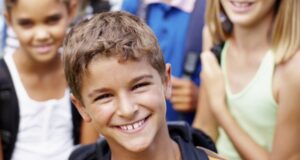Little Koala Montessori Academy Daycare program opens for children age 15 months to 36 months old, with 20 spaces in Abbotsford location, 34 spaces in Richmond (Clarke), and 24 spaces in Delta location.
• 7:30am to 5:30pm Abbotsford, 8:00am-5:30pm Richmond (Clarke), Delta
• 9 hours / day, 5 days / week
• Ages 15 months to 36 months old
• 3 Early Childhood Educators per class with 12 children.
Program Description
Babies are born learning. Very young children are learning through play, the active exploration of their environment, and, most importantly, through interactions with the significant adults in their lives.
Little Koala Montessori Academy Infant and Toddler Program Offers the following program:
Early Literacy Learning
Learning to read and write doesn’t start in kindergarten or first grade.
Developing language and literacy skills begins at birth through everyday loving interactions, such as sharing books, telling stories, singing songs and talking to one another. Teachers play a very important role in preparing young children for future school success and helping them become self-confident and motivated learners.
Early Math and Science
Children use early math skills throughout their daily routines and activities. This is good news as these skills are important for being ready for school.
But early math doesn’t mean taking out the calculator during playtime. Even before they start school, most children develop an understanding of addition and subtraction through everyday interactions. Other math skills are introduced through daily routines you share with your child, like counting steps as you go up or down. Informal activities give children a jumpstart on the more formal math instruction that starts in school.
Social Skills
Social skills, including self-control and making friends, help children succeed in both school and life.
children develop social skills starting from birth. We will support a child’s development of these important life skills through daily interactions with them.
Play
There’s a lot happening during playtime. Little ones are lifting, dropping, looking, pouring, bouncing, hiding, building, knocking down, and more in our classroom.
Children are more than busy when they’re playing. When your children play with peers in the classroom, they are also learning that they are loved and important and that they are fun to be around. These social-emotional skills give babies the self-esteem and self-confidence they need to continue building loving and supportive relationships all their lives.


